Profile
Cale Weatherly
-
About Me:
I live in Philadelphia with my wife and two young kids. I work in chemical development for pharmaceuticals and enjoy rock climbing, trail running, reading novels, and volunteering at church.
-
Read more
I fell in love with chemistry in high school. I loved solving a scientific problem using paper and pencil, and then going into the lab and solving the same problem using real chemicals. In college, I majored in chemistry. In college chemistry, I was introduced to all sorts of sub-fields of chemistry. For example, I took an analytical chemistry course, which focused on figuring out what makes up different chemical compounds and mixtures, and physical chemistry, which uses lots of math to describe chemical behavior as precisely as possible. But I really fell in love with organic chemistry, which is the study of carbon compounds. It’s the chemistry that describes most of what goes on in our bodies, and is the basis for making fuels, medicines, agricultural chemicals, and many other products that make modern life comfortable. I learned that organic chemists are responsible for making the most important parts of new medicines, and knew for sure that I wanted to do that for a living.
To prepare for a career in organic chemistry, I had to go to graduate school after college. I earned a PhD in organic chemistry in five years. Graduate school is very different from college or high school. You only take a few classes, and spend most of your time solving research problems in the lab. After graduate school, I did even more research at a university as a postdoctoral researcher. I then entered the pharmaceutical industry and worked for a couple of small companies before taking a job with Johnson Matthey’s Health division.
I also managed to meet my wife Laurie, get married and have two wonderful children along the way!
-
My Work:
I use organic chemistry to develop better ways of making active pharmaceutical ingredients, the parts of medicines that help your body prevent and fight sickness.
-
Read more
Developing a new medicine is an incredibly complex process. Going from an idea for a new medicine to a complete product that can be prescribed by doctors and sold by pharmacies usually takes over ten years. Before a pharmaceutical company can sell its new medicine, they have to put it through a process called “clinical trials.” This means giving the medicine to small numbers of people to see if it is safe and treats the sickness that it’s supposed to treat. To do clinical trials, you need to make lots of the medicine. If the clinical trials are successful and the medicine becomes a product, then you need to make lots more, usually tons and tons of it.
My field is called “process chemistry” and it is focused on how to make large amounts of these new medicines. At the core of each medicine is an “active pharmaceutical ingredient (API).” This is the part that really affects your body and helps it fight sickness. Most APIs are chemical compounds made of the element carbon. As an organic chemist, I use my knowledge of carbon chemistry to figure the best way to make APIs. Some of the things I focus on are efficiency (How many chemical reactions do we need to make an API? Fewer is better.), purity (Are other chemicals getting into the API? How do we get rid of them?), and being environmentally friendly (Does our chemical process make toxic waste? How can we minimize that?).
I set up lots of chemical reactions in lab and use high-tech instruments to see how well they worked. If they work well, I use them to make bigger and bigger amounts of compounds, and see if they still work. After several months of this, we use our best chemical reactions to make a large amount of an API, about 1 kilogram (2.2 pounds). If this is successful, then engineers figure out how to do the same thing in a chemical plant to make tons and tons of the API.
-
My Typical Day:
After a quick breakfast, I arrive at work at 8:30 am. I keep up with email and go into the lab to make sure that all my instruments are set up properly. I set up chemistry experiments. Then I usually have a meeting with co-workers where we discuss our latest experiments and plan the next ones. After lunch, I check my experiments and record the results in my lab notebook. I leave at 4:30 pm.
-
Read more
I begin the day by catching up on email and looking at the latest papers in scientific journals in my field. I review new data from my experiments and spend a lot of time planning new experiments and getting my lab notebook ready to run them. I then go into lab and run tests on my analytical instruments to make sure they are working properly. After this, I gather all the equipment and chemicals I need for my next experiments. I make sure that all my containers are clean before I add new chemicals to them. It can take 30 minutes to 2 hours to set up a new experiment, so I move slowly and carefully.
After setting up an experiment, it is usually time for lunch. I usually eat lunch with colleagues, but I always have a book ready to read in case I am by myself. After lunch, I usually check my experiment using my analytical instruments. I have great co-workers, so I like to discuss my results with them, informally in my office, or in a weekly meeting. If the experiment is successful, I will stop it and try to get the new chemical compound that I made. If the experiment worked, the compound will usually be a nice white powder. I then place the compound in an oven to dry overnight. I carefully record everything that I do in a lab notebook.
After this, I make sure to clean up my workspace in lab before going home for the day.
-
What I'd do with the prize money:
Buy supplies to do chemistry demonstrations in elementary schools.
-
Education:
Walnut Hills High School
Williams College (BA in chemistry, second major in philosophy)
University of Wisconsin-Madison (PhD)
University of Pennsylvania (postdoctoral research)
-
Work History:
Barista, Starbucks (2005-2006)
Web order fulfillment, Nordstrom (2009-2010)
Graduate Research and Teaching Assistant, University of Wisconsin-Madison (2010-2015)
Postdoctoral Researcher, University of Pennsylvania (2015-2017)
Senior Research Chemist, Exemplify Biopharma (2017-2018)
Senior Scientist, Abzena (2018-2021)
Scientist, Johnson-Matthey (2021-present)
-
Current Job:
Scientist, Johnson-Matthey (2021-present)
-
Employer:

-
My Interview
-
How would you describe yourself in 3 words?
analytical, determined, intense
What's the best thing you've done in your career?
develop a chemical process that is being used to make a compound for clinical trials
What or who inspired you to follow your career?
knowing that I could use science to improve human health
What was your favorite subject at school?
chemistry, but I also loved English and math
What did you want to be after you left school?
a chemist
Were you ever in trouble at school?
yes, but let's not go into detail...
If you weren't doing this job, what would you choose instead?
economist
Who is your favorite singer or band?
Radiohead
What's your favorite food?
smoked salmon
What is the most fun thing you've done?
I've completed three full Tough Mudders.
If you had 3 wishes for yourself what would they be? - be honest!
1) Good health and character for my kids. 2) A cabin in the mountains. 3) A self-cleaning chemistry lab!
Tell us a joke.
A priest, a minister, a rabbi walk into a bar. The bartender says, "What is this, some sort of joke?"
-
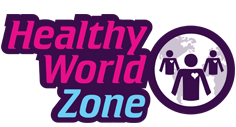
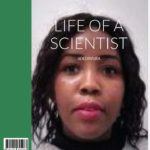

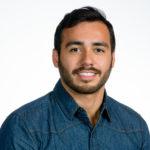
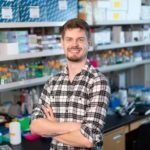

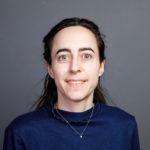
My Comments